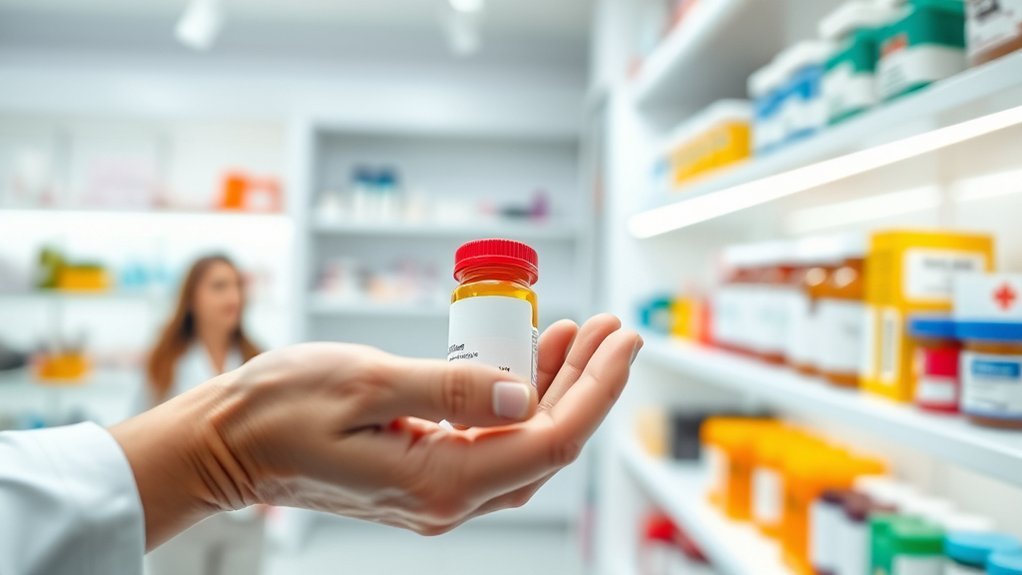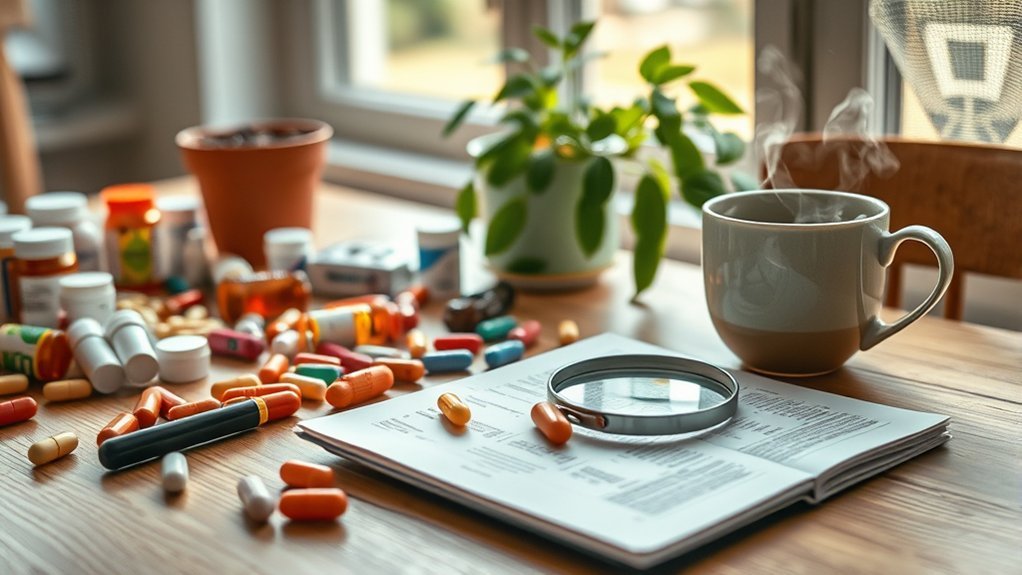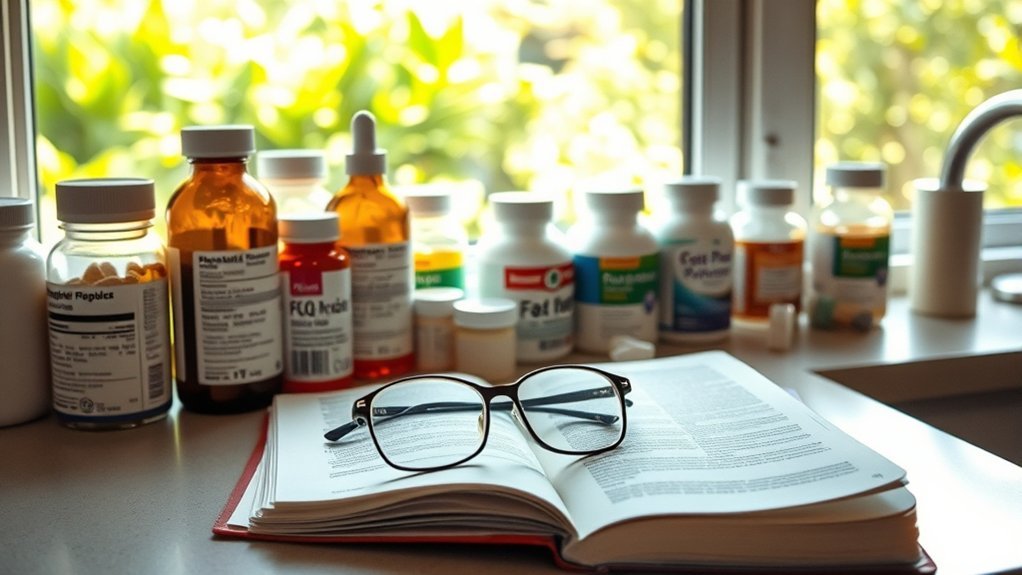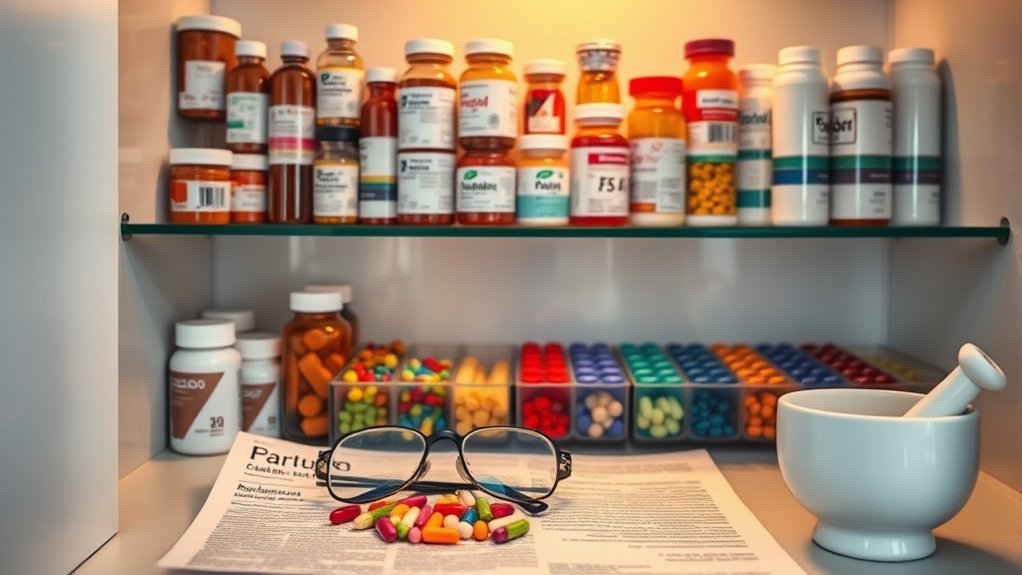When it comes to medications, how can you be sure they’re safe? Understanding the nuances of safe medications is vital for your health. You need to know how to identify potential side effects, recognize drug interactions, and understand proper dosage. Additionally, proper storage and handling are essential for maintaining medication efficacy. The questions you have about these topics can greatly influence your treatment outcomes. Let’s explore these important aspects further.
What Are Safe Medications?

When considering medications, it’s important to understand what qualifies as safe. Safe medications are those that have undergone rigorous clinical trials and adhere to regulatory standards set by health authorities. They demonstrate a favorable risk-benefit profile, meaning their therapeutic effects outweigh potential risks.
These medications typically have well-documented efficacy and safety data, allowing healthcare professionals to prescribe them confidently.
Additionally, safe medications are manufactured in facilities compliant with Good Manufacturing Practices (GMP), guaranteeing quality control throughout the production process.
Patient-specific factors, such as age, weight, and pre-existing conditions, also play a significant role in determining medication safety. It’s crucial to consult with healthcare providers to confirm the chosen medication aligns with individual health needs and circumstances.
How to Identify Potential Side Effects?

Identifying potential side effects of medications is essential for ensuring patient safety and optimizing treatment outcomes.
To effectively recognize these side effects, you should:
- Review medication information leaflets that accompany your prescriptions.
- Consult your healthcare provider or pharmacist for personalized advice.
- Monitor your body’s reactions after starting a new medication, noting any unusual symptoms.
- Utilize reputable online resources or databases that list common and severe side effects.
Can Medications Interact With Each Other?

Since medications can affect each other’s effectiveness and safety, understanding drug interactions is vital for anyone taking multiple prescriptions.
These interactions can occur in various ways: one medication may enhance or inhibit the action of another, leading to increased side effects or reduced therapeutic effects. For example, certain antibiotics can interfere with the effectiveness of birth control pills.
It’s important to inform your healthcare provider about all medications, including over-the-counter drugs and supplements, to avoid harmful interactions.
Always read medication guides and consult with pharmacists or doctors if you’re uncertain about potential interactions.
Regularly reviewing your medication regimen can help guarantee you’re using your prescriptions safely and effectively.
What Should I Know About Dosage?
Understanding dosage is vital for the effectiveness and safety of your medications.
Accurate dosing guarantees that you receive the intended therapeutic effects without risking potential side effects.
If you need to adjust your dosage, it’s important to do so under the guidance of your healthcare provider to maintain safety and efficacy.
Importance of Accurate Dosage
Accurate dosage is essential for guaranteeing the safety and efficacy of medications, as even small deviations can lead to serious health consequences.
Proper dosage helps maintain the drug’s therapeutic effect while minimizing the risk of side effects or toxicity.
Here’s what you should keep in mind about dosage:
- Follow Prescriptions: Always adhere to the dosage prescribed by your healthcare provider.
- Use Measuring Tools: Utilize appropriate measuring devices for liquids to guarantee accuracy.
- Consider Your Condition: Individual factors like age, weight, and health status can affect required dosages.
- Report Side Effects: Inform your healthcare provider immediately if you experience any adverse reactions.
Adjusting Dosage Safely
How do you know when it’s necessary to adjust your medication dosage?
You’ll need to monitor your symptoms and side effects closely. If you notice persistent issues, such as increased pain or new side effects, consult your healthcare provider. They may recommend a dosage adjustment based on your response to the medication.
Additionally, if you experience changes in your health status, like weight fluctuations or the onset of other medical conditions, this could warrant a reevaluation of your dosage.
Always communicate any concerns with your provider before making changes. Never adjust your dosage without professional guidance, as improper adjustments can lead to ineffective treatment or increased risks of toxicity.
Regular follow-ups are essential for safe medication management.
How to Store Medications Properly?
Proper medication storage is essential to maintaining their effectiveness and safety, especially since many medications can be sensitive to heat, moisture, and light.
Proper medication storage is crucial for preserving their potency and safety, as many are sensitive to environmental factors.
To guarantee your medications remain potent, follow these guidelines:
- Store medications in their original containers to protect them from light and moisture.
- Keep them in a cool, dry place, away from direct sunlight, like a cabinet rather than a bathroom.
- Always check expiration dates and dispose of expired medications properly.
- Avoid sharing your medications with others, as they may not have the same health conditions.
What to Do If You Miss a Dose?
Missing a dose of your medication can happen to anyone, and knowing how to respond is vital for maintaining your treatment regimen.
If you realize you’ve missed a dose, take it as soon as you remember, unless it’s almost time for your next dose. In that case, skip the missed dose—don’t double up to make up for it.
If you’re unsure about what to do, or if your medication has specific instructions regarding missed doses, consult the patient information leaflet or your pharmacist.
Keep track of missed doses to discuss with your healthcare provider at your next appointment. Staying organized with a pillbox or setting reminders can help prevent future missed doses and guarantee consistent medication adherence.
When Should I Consult a Healthcare Professional?
When should you consider reaching out to a healthcare professional about your medication?
It’s vital to seek guidance when you’re unsure about dosage, experiencing side effects, or need clarification on interactions with other medications. Consulting a professional is also essential if you have a chronic condition that may affect your treatment.
- You’ve missed multiple doses and aren’t sure what to do next.
- You’re experiencing unexpected or severe side effects.
- You’re considering starting or stopping a medication.
- You have questions about the long-term effects of your medication.
Frequently Asked Questions
Are Over-The-Counter Medications Always Safe to Use?
Over-the-counter medications aren’t always safe. They can interact with other drugs, cause side effects, or be inappropriate for certain conditions. Always read labels, consult a healthcare professional, and use them responsibly to guarantee safety.
Can Natural Supplements Interfere With Prescription Medications?
Yes, natural supplements can negatively interfere with prescription medications. Certain herbs and vitamins might amplify or diminish drug effects, risking your health. Always consult your healthcare provider before combining any supplements with your prescribed treatments.
How Can I Ensure My Medications Are Not Counterfeit?
To guarantee your medications aren’t counterfeit, always purchase from licensed pharmacies, check for tamper-proof packaging, verify the drug’s appearance against official images, and consult your healthcare provider if you have doubts about any medication.
What Should I Do With Expired Medications?
You should dispose of expired medications properly. Take them to a pharmacy’s take-back program, or follow local disposal guidelines. Never flush them down the toilet or throw them in the trash without precautions.
Are There Safe Medications for Pregnant or Breastfeeding Women?
When traversing a tightrope, safety’s essential. Yes, there are safe medications for pregnant or breastfeeding women, but you should always consult your healthcare provider. They’ll guide you through options tailored to your specific needs.
Conclusion
In the quest for safe medications, it’s ironic that the very substances meant to heal can also pose risks if mishandled. By understanding potential side effects, interactions, and proper storage, you empower yourself to use these medications wisely. It’s a delicate balance—your health hinges on knowing when to rely on their benefits and when to seek professional guidance. So, while medications aim to enhance your well-being, a little caution can go a long way in ensuring they truly do.
